
Sometimes I Feel
Like A Motherless Child
Arr. by Forrest Kinney
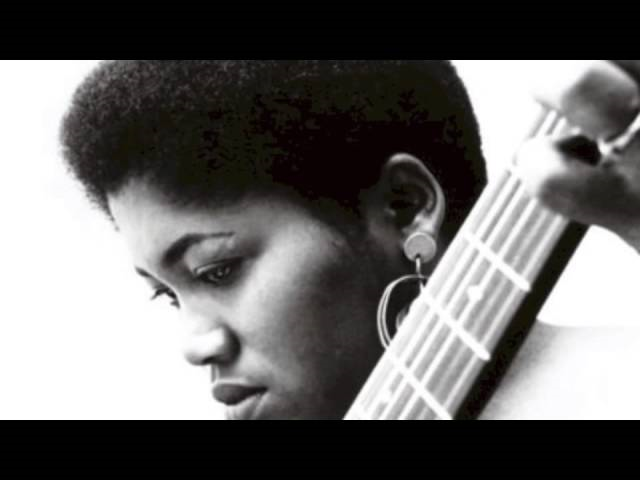
The " Sometimes I Feel Like A Motherless Child " is a traditional Negro spiritual. It dates back to the era of slavery in the United States. An early performance of the song dates back to the 1870s by the Fisk Jubilee Singers. Like many traditional songs, it has many variations and has been recorded widely. The song is an expression of pain and despair as it conveys the hopelessness of a child who has been torn from her or his parents. Under one interpretation, the repetitive singing of the word "sometimes" offers a measure of hope, as it suggests that at least "sometimes" I do not feel like a motherless child.
Although the plaintive words can be interpreted literally, they might alternatively be metaphoric. The "motherless child" could be an enslaved person separated from and yearning for his or her African homeland, his or her spouse, parents, siblings, or child(ren) (from all or any of which he or she may have been separated in the trafficking process) or an enslaved person suffering "a long ways from home"—home being heaven—or most likely all.
Odetta Holmes (December 31, 1930 – December 2, 2008), known as Odetta, was an American singer, actress, guitarist, lyricist, and a civil and human rights activist, often referred to as "The Voice of the Civil Rights Movement". Her musical repertoire consisted largely of American folk music, blues, jazz, and spirituals. An important figure in the American folk music revival of the 1950s and 1960s, she influenced many of the key figures of the folk-revival of that time, including Bob Dylan, Joan Baez, Mavis Staples, and Janis Joplin. Time magazine included her recording of "Take This Hammer" on its list of the 100 Greatest Popular Songs, stating that Rosa Parks was her No. 1 fan, and Martin Luther King Jr. called her the queen of American folk music.
[video width="640" height="360" mp4="https://www.easypianoonline.com/wp-content/uploads/2019/07/SometimesIFeelLikeAMotherlessChild-Odetta.mp4"]
Lyrics
Sometimes I feel like a motherless child
Sometimes I feel like a motherless child
Sometimes I feel like a motherless child
A long way from home, a long way from home
Sometimes I feel like I'm almost done
Sometimes I feel like I'm almost done
Sometimes I feel like I'm almost done
And a long, long way from home, a long way from home
True believer
True believer
A long, long way from home
A long, long way from home
Composer: Traditional

Perhaps Love
by John Denver

The " Perhaps Love " is a song that John Denver wrote and recorded as a duet with Plácido Domingo. The song appeared on Domingo's 1981 album of the same title. "Perhaps Love" is the only song on the album with Denver's vocals alongside Domingo's. However, Denver also appears on the album's cover version of his composition "Annie's Song", where he accompanies Domingo on guitar. Released as a single with "Annie's Song" on the B side, "Perhaps Love" peaked at #22 on the U.S. Adult Contemporary chart and #59 on the Billboard Hot 100 in 1982. Remaining in print, the song sold almost four million copies by 2008.
"Perhaps Love" was addressed to Denver's wife Annie Martell (the eponym of his #1 hit "Annie's Song") while they were separated and moving towards a divorce. In an interview the day after Denver's death in 1997, Annie said that this was her favorite song of his, rather than "Annie's Song" (which she also said she enjoyed).
Milt Okun, the album's producer, first suggested that Domingo, an opera singer, pair with the famous folk singer on the song. The producer worked hard to promote the song after its release. An independent radio promoter told Okun at the time, "It's very beautiful, but there's no chance at all of this getting on the air." To both men's surprise, one of the top five radio stations in the United States in Philadelphia began playing the song every hour on the hour, greatly contributing to its success and the willingness of other stations to play it.
[video width="640" height="360" mp4="https://www.easypianoonline.com/wp-content/uploads/2019/07/PerhapsLove-JohnDenver-PlacidoDomingo.mp4"]
Lyrics
Perhaps love is like a resting place
A shelter from the storm
It exists to give you comfort
It is there to keep you warm
And in those times of trouble
When you are most alone
The memory of love will bring you home
Perhaps love is like a window
Perhaps an open door
It invites you to come closer
It wants to show you more
And even if you lose yourself
And don't know what to do
The memory of love will see you through
Oh, love to some is like a cloud
To some as strong as steel
For some a way of living
For some a way to feel
And some say love is holding on
And some say letting go
And some say love is everything
And some say they don't know
Perhaps love is like the ocean
Full of conflict, full of pain
Like a fire when it's cold outside
Or thunder when it rains
If I should live forever
And all my dreams come true
My memories of love will be of you
And some say love is holding on
And some say letting go
And some say love is everything
And some say they don't know
Perhaps love is like the ocean
Full of conflict, full of pain
Like a fire when it's cold outside
Or thunder when it rains
If I should live forever
And all my dreams come true
My memories of love will be of you
Songwriters: John Denver

Let It Be
by The Beatles
(John Lennon and Paul McCartney)
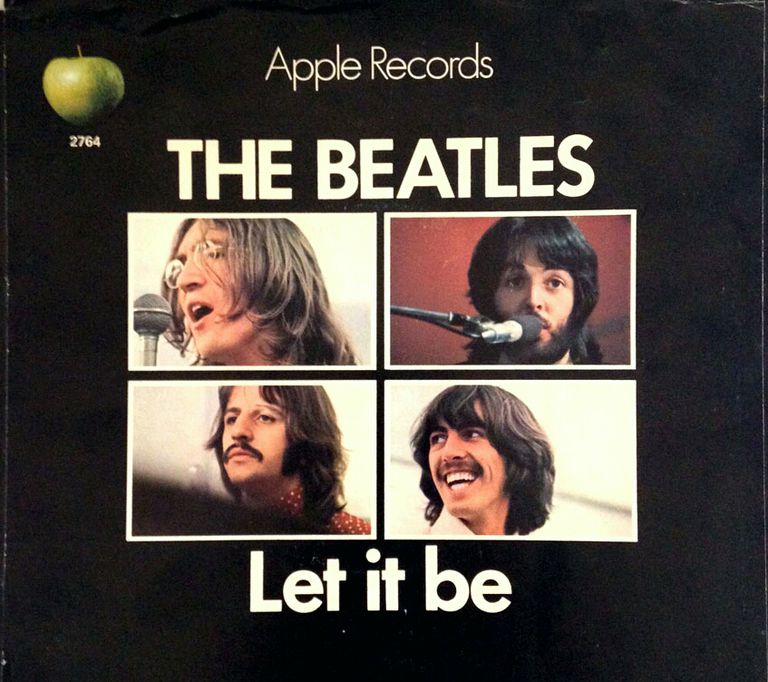
The " Let It Be " is a song by the English rock band the Beatles, released in March 1970 as a single, and (in an alternate mix) as the title track of their album Let It Be. At the time, it had the highest debut on the Billboard Hot 100, beginning its chart run at number 6. It was written and sung by Paul McCartney. It was their final single before McCartney announced his departure from the band.
McCartney said he had the idea of "Let It Be" after he had a dream about his mother during the tense period surrounding the sessions for The Beatles ("the White Album") in 1968. When rehearsing the song with the Beatles in January 1969, McCartney occasionally sang "Brother Malcolm", a reference to the Beatles' assistant Mal Evans, in place of the "Mother Mary" lyric. According to McCartney, the song's reference to "Mother Mary" was not biblical.[4] The phrase has at times been used as a reference to the Virgin Mary. Nevertheless, McCartney explained that his mother – who died of cancer when he was fourteen – was the inspiration for the "Mother Mary" lyric. He later said: "It was great to visit with her again. I felt very blessed to have that dream. So that got me writing 'Let It Be'." He also said in a later interview about the dream that his mother had told him, "It will be all right, just let it be." When asked if the song referred to the Virgin Mary, McCartney has typically answered the question by saying that listeners can interpret the song however they like.
[video width="640" height="360" mp4="https://www.easypianoonline.com/wp-content/uploads/2019/07/LetItBe-1970.mp4"]
Lyrics
When I find myself in times of trouble, Mother Mary comes to me
Speaking words of wisdom, let it be
And in my hour of darkness she is standing right in front of me
Speaking words of wisdom, let it be
Let it be, let it be, let it be, let it be
Whisper words of wisdom, let it be
And when the broken-hearted people living in the world agree
There will be an answer, let it be
For though they may be parted, there is still a chance that they will see
There will be an answer, let it be
Let it be, let it be, let it be, let it be
Yeah, there will be an answer, let it be
Let it be, let it be, let it be, let it be
Whisper words of wisdom, let it be
Let it be, let it be, let it be, yeah, let it be
Whisper words of wisdom, let it be
And when the night is cloudy there is still a light that shines on me
Shine until tomorrow, let it be
I wake up to the sound of music, Mother Mary comes to me
Speaking words of wisdom, let it be
Let it be, let it be, let it be, yeah, let it be
There will be an answer, let it be
Let it be, let it be, let it be, yeah, let it be
There will be an answer, let it be
Let it be, let it be, let it be, yeah, let it be
Whisper words of wisdom, let it be
Songwriters: John Lennon / Paul McCartney

In Church
by Tchaikovsky

The"In Church" was composed by Pyotr Ilyich Tchaikovsky in 1878.
This theme from Op. 39 Album pour enfants, 24 pieces for piano.

[xyz-ihs snippet="NavigationLinksBlock-Common"]
Danny Boy
Arr. by Forrest Kinney
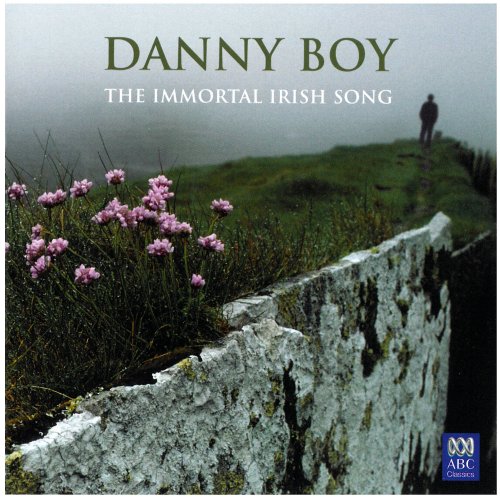
The " Danny Boy " is a ballad set to a traditional Irish melody. English songwriter Frederic Weatherly wrote the lyrics in Bath, Somerset, England in 1913. The lyrics were rearranged in order to better suit the accompanying melody of "Londonderry Air". Frederic Weatherly wrote the words to "Danny Boy" in Bath, Somerset in 1910. After his Irish-born sister-in-law Margaret (known as Jess) in the United States sent him a copy of "Londonderry Air" in 1913 (an alternative version of the story has her singing the air to him in 1912 with different lyrics), Weatherly modified the lyrics of "Danny Boy" to fit the rhyme and meter of "Londonderry Air". Weatherly gave the song to the vocalist Elsie Griffin, who made it one of the most popular songs in the new century. In 1915, Ernestine Schumann-Heink produced the first recording of "Danny Boy". Jane Ross of Limavady is credited with collecting the melody of "Londonderry Air" in the mid-19th century from a musician she encountered.
[video width="640" height="360" mp4="https://www.easypianoonline.com/wp-content/uploads/2019/07/DannyBoy.mp4"]
Lyrics
Oh, Danny boy, the pipes, the pipes are calling
From glen to glen, and down the mountain side.
The summer's gone, and all the roses falling,
It's you, it's you must go and I must bide.
But come ye back when summer's in the meadow,
Or when the valley's hushed and white with snow,
It's I'll be here in sunshine or in shadow,
Oh, Danny boy, oh Danny boy, I love you so!
But when ye come, and all the flowers are dying,
If I am dead, as dead I well may be,
You'll come and find the place where I am lying,
And kneel and say an Ave there for me.
And I shall hear, though soft you tread above me,
And all my grave will warmer, sweeter be,
For you will bend and tell me that you love me,
And I shall sleep in peace until you come to me!
Songwriters: Frederick E. Weatherly

[xyz-ihs snippet="NavigationLinksBlock-Common"]
Amazing Grace
Arr. by Forrest Kinney

The " Amazing Grace " is a Christian hymn published in 1779, with words written by the English poet and Anglican clergyman John Newton (1725–1807). Ordained in the Church of England in 1764, Newton became curate of Olney, Buckinghamshire, where he began to write hymns with poet William Cowper. "Amazing Grace" was written to illustrate a sermon on New Year's Day of 1773. It is unknown if there was any music accompanying the verses; it may have been chanted by the congregation. It debuted in print in 1779 in Newton and Cowper's Olney Hymns but settled into relative obscurity in England. In the United States, "Amazing Grace" became a popular song used by Baptist and Methodist preachers as part of their evangelizing, especially in the South, during the Second Great Awakening of the early 19th century. It has been associated with more than 20 melodies. In 1835, American composer William Walker set it to the tune known as "New Britain" in a shape-note format. This is the version most frequently sung today.
[video width="640" height="360" mp4="https://www.easypianoonline.com/wp-content/uploads/2019/07/AmazingGrace-IlDivo.mp4"]
Lyrics
Amazing Grace, How sweet the sound
That saved a wretch like me
I once was lost, but now am found
T'was blind but now I see
T'was Grace that taught my heart to fear
And Grace, my fears relieved
How precious did that grace appear
The hour I first believed
Through many dangers, toils and snares
We have already come.
T'was grace that brought us safe thus far
And grace will lead us home,
Through many dangers, toils and snares
We have already come.
T'was grace that brought us safe thus far
And grace will lead us home,
And grace will lead us home
Amazing grace, Howe Sweet the sound
That saved a wretch like me
I once was lost but now am found
T'was blind but now I see
Songwriters: John Newton

[xyz-ihs snippet="NavigationLinksBlock-Common"]
Heathens
by Twenty One Pilots

The " Heathens " is a song by American musical duo Twenty One Pilots, released as the lead single for the motion picture soundtrack for the film Suicide Squad (2016) on June 16, 2016, through Atlantic Records. The song was written by Tyler Joseph and produced by him along with Mike Elizondo. "Heathens" peaked at number two on the US Billboard Hot 100, tying with "Stressed Out" for the duo's highest charting single to date. "Heathens" was nominated for three Grammy Awards at the 59th annual awards ceremony. "Heathens" is a rap rock song. It is played in the key of E Minor. The song also peaked at number one on the Alternative Songs chart, and reached the top 20 in a variety of other charts. As of September 2017, "Heathens" has sold over 2.1 million copies in the US.
[video width="640" height="360" mp4="https://www.easypianoonline.com/wp-content/uploads/2019/06/Heathens.mp4"]
Lyrics
All my friends are heathens, take it slow
Wait for them to ask you who you know
Please don't make any sudden moves
You don't know the half of the abuse
All my friends are heathens, take it slow
Wait for them to ask you who you know
Please don't make any sudden moves
You don't know the half of the abuse
Welcome to the room of people
Who have rooms of people that they loved one day
Docked away
Just because we check the guns at the door
Doesn't mean our brains will change from hand grenades
You're lovin' on the psychopath sitting next to you
You're lovin' on the murderer sitting next to you
You'll think, "How'd I get here, sitting next to you?"
But after all I've said, please don't forget
All my friends are heathens, take it slow
Wait for them to ask you who you know
Please don't make any sudden moves
You don't know the half of the abuse
We don't deal with outsiders very well
They say newcomers have a certain smell
Yeah, trust issues, not to mention
They say they can smell your intentions
You're lovin' on the freakshow sitting next to you
You'll have some weird people sitting next to you
You'll think "How did I get here, sitting next to you?"
But after all I've said, please don't forget
(Watch it, watch it)
All my friends are heathens, take it slow
Wait for them to ask you who you know
Please don't make any sudden moves
You don't know the half of the abuse
All my friends are heathens, take it slow
(Watch it)
Wait for them to ask you who you know
(Watch it)
All my friends are heathens, take it slow
(Watch it)
Wait for them to ask you who you know
(Watch it)
Why'd you come, you knew you should have stayed
(It's blasphemy)
I tried to warn you just to stay away
And now they're outside ready to bust
It looks like you might be one of us
Songwriters: Tyler Joseph

[xyz-ihs snippet="NavigationLinksBlock-Common"]
The Little Man In The Woods
by Engelbert Humperdinck
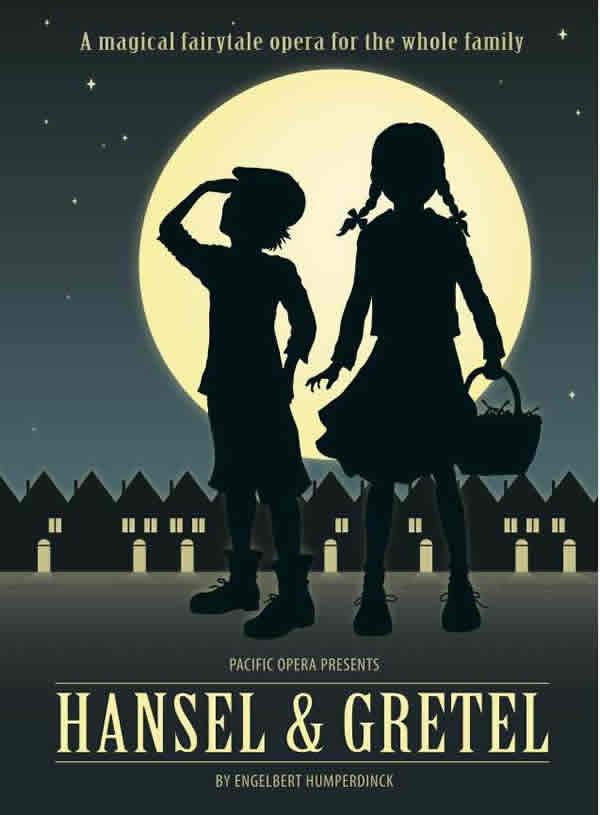
The " The Little Man In The Woods " is a musical theme for the character of The Sandman from the opera Hansel And Gretel. Hansel and Gretel was composed by Engelbert Humperdinck, who described it as a Märchenoper (fairy-tale opera). The libretto was written by Humperdinck's sister, Adelheid Wette, based on the Grimm brothers' fairy tale "Hansel and Gretel". It is much admired for its folk music-inspired themes, one of the most famous being the "Abendsegen" ("Evening Benediction") from act 2. The idea for the opera was proposed to Humperdinck by his sister, who approached him about writing music for songs that she had written for her children for Christmas based on "Hansel and Gretel". After several revisions, the musical sketches and the songs were turned into a full-scale opera. Humperdinck composed Hansel and Gretel in Frankfurt in 1891 and 1892. The opera was first performed in Hoftheater in Weimar on 23 December 1893, conducted by Richard Strauss. It has been associated with Christmas since its earliest performances and today it is still most often performed at Christmas time.

[xyz-ihs snippet="NavigationLinksBlock-Common"]
Somewhere Only We Know
by Keane
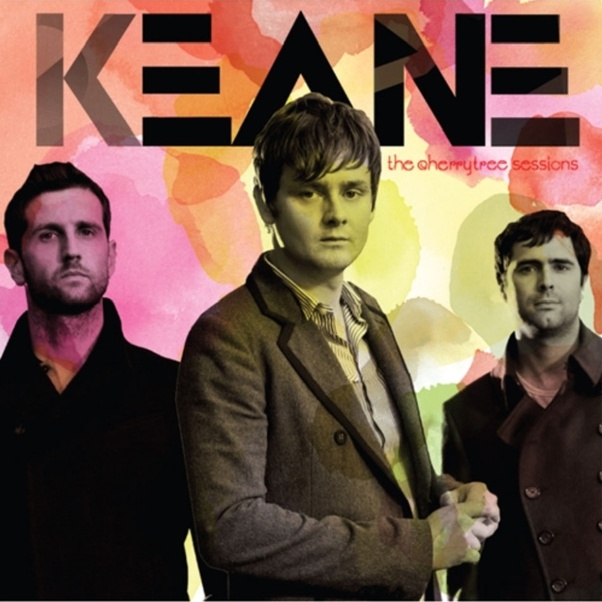
The " Somewhere Only We Know " is a song composed and performed by English alternative rock band Keane, officially released as the first single from their debut album Hopes and Fears (2004). The single became one of the biggest hits of 2004 worldwide and peaking on the UK Singles Chart at number three during its first week of sale. It was also Keane's best-selling single until "Is It Any Wonder?" in 2006. In 2013, the song was covered by Lily Allen for a John Lewis Christmas advert. The first demo was composed by Tim Rice-Oxley in about 2001. Rice-Oxley said that the song came from "hammering away on the piano" explaining "I was thinking of something like David Bowie's "Heroes", which you drive along to a really rocking beat. ... It was one of the first things we recorded for the album." It was first played on the guitar just before Dominic Scott left the band, and recorded as a demo the same year with a Yamaha CP70 instead of the guitar. Keane recorded the final version in 2003 at the Helioscentric Studios, Rye, East Sussex for the album.
[video width="640" height="360" mp4="https://www.easypianoonline.com/wp-content/uploads/2019/06/SomewhereOnlyWeKnow.mp4"]
Lyrics
I walked across an empty land
I knew the pathway like the back of my hand
I felt the earth beneath my feet
Sat by the river, and it made me complete
Oh, simple thing, where have you gone?
I'm getting old, and I need something to rely on
So tell me when you're gonna let me in
I'm getting tired, and I need somewhere to begin
I came across a fallen tree
I felt the branches of it looking at me
Is this the place we used to love?
Is this the place that I've been dreaming of?
Oh, simple thing, where have you gone?
I'm getting old, and I need something to rely on
So tell me when you're gonna let me in
I'm getting tired, and I need somewhere to begin
And if you have a minute, why don't we go
Talk about it somewhere only we know?
This could be the end of everything
So why don't we go
Somewhere only we know?
Oh, simple thing, where have you gone?
I'm getting old, and I need something to rely on
So tell me when you're gonna let me in
I'm getting tired, and I need somewhere to begin
And if you have a minute, why don't we go
Talk about it somewhere only we know?
This could be the end of everything
So why don't we go?
So why don't we go?
This could be the end of everything
So why don't we go
Somewhere only we know
Somewhere only we know
Somewhere only we know?
Songwriters: Richard David Hughes / Timothy James Rice-Oxley / Tom Chaplin

[xyz-ihs snippet="NavigationLinksBlock-Common"]
Reprise from Spirited Away
by Joe Hisaishi
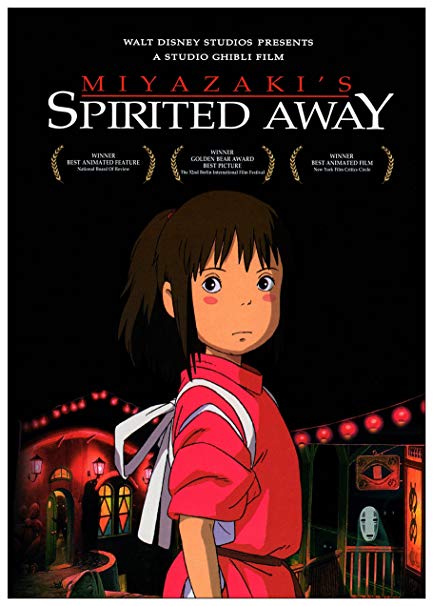
The "Spirited Away" is a 2001 Japanese animated coming-of-age fantasy film It was written and directed by Hayao Miyazaki, animated by Studio Ghibli for Tokuma Shoten, Nippon Television Network, Dentsu, Buena Vista Home Entertainment, Tohokushinsha Film and Mitsubishi and distributed by Toho. The film stars Rumi Hiiragi, Miyu Irino, Mari Natsuki, Takeshi Naito, Yasuko Sawaguchi, Tsunehiko Kamijō, Takehiko Ono, and Bunta Sugawara. Spirited Away tells the story of Chihiro Ogino (Hiiragi), a moody 10-year-old girl who, while moving to a new neighbourhood, enters the world of Kami (spirits) of Japanese Shinto folklore. After her parents are transformed into pigs by the witch Yubaba (Natsuki), Chihiro takes a job working in Yubaba's bathhouse to find a way to free herself and her parents and return to the human world.
The film was originally released in Japan on 20 July 2001 by distributor Toho. It became the most successful film in Japanese history, grossing over $290 million worldwide. The film overtook Titanic (the top-grossing film worldwide at the time) in the Japanese box office to become the highest-grossing film in Japanese history with a total of ¥30.8 billion. Spirited Away received universal acclaim and is frequently ranked among the greatest animated films ever made. It won the Academy Award for Best Animated Feature at the 75th Academy Awards, making it the first (and so far only) hand-drawn and non-English-language animated film to win that award. It was the co-recipient of the Golden Bear at the 2002 Berlin International Film Festival (shared with Bloody Sunday) and is in the top 10 on the British Film Institute's list of "Top 50 films for children up to the age of 14".
In 2016, it was voted the fourth-best film of the 21st century as picked by 177 film critics from around the world, making it the highest-ranking animated film on the list It was also named the second "Best Film of the 21st Century So Far" in 2017 by the New York Times.
[video width="640" height="360" mp4="https://www.easypianoonline.com/wp-content/uploads/2019/06/Reprise_SpiritedAway.mp4"]

[xyz-ihs snippet="NavigationLinksBlock-Common"]
Laughing Song
by Johann Strauss II

The " Laughing Song " is an aria from Die Fledermaus or The Bat, sometimes called The Revenge of the Bat which is an operetta composed by Johann Strauss II to a German libretto by Karl Haffner and Richard Genée. The original literary source for Die Fledermaus was Das Gefängnis (The Prison), a farce by German playwright Julius Roderich Benedix that premiered in Berlin in 1851. On 10 September 1872, a three-act French vaudeville play by Henri Meilhac and Ludovic Halévy, Le Réveillon, loosely based on the Benedix farce, opened at the Théâtre du Palais-Royal.Meilhac and Halévy had provided several successful libretti for Offenbach and Le Réveillon later formed the basis for the 1926 silent film So This Is Paris, directed by Ernst Lubitsch.
Meilhac and Halévy's play was soon translated into German by Karl Haffner (1804–1876), at the instigation of Max Steiner, as a non-musical play for production in Vienna. The French custom of a New Year's Eve réveillon, or supper party, was not considered to provide a suitable setting for the Viennese theatre, so it was decided to substitute a ball for the réveillon. Haffner's translation was then passed to the playwright and composer Richard Genée, who had provided some of the lyrics for Strauss's Der Karneval in Rom the year before, and he completed the libretto. The operetta premiered on 5 April 1874 at the Theater an der Wien in Vienna and has been part of the regular repertoire ever since.
[video width="640" height="360" mp4="https://www.easypianoonline.com/wp-content/uploads/2019/06/LaughingSong_DieFledermaus.mp4"]
Lyrics
My dear Marquis
It seems to me
You should display more tact
Where a lady goes
What a lady shows
Is how she proves the fact
My taste is to fine and too chic
Ah ha ha ha ha
My waist has a line so unique
Ah ha ha ha ha
My walk is so dramatic
My talk aristocratic
What chamber maid you know could have so much to show (2)
Instead of putting on such airs
Why don't you mind your own affairs?
It's too funny
Ah ha ha
Please excuse me
Ah ha ha
I can't help it
Ah ha ha
You amuse me
Ah ha ha ha ha ha
You're funny as you can be Marquis
Just look at me
And you will see
There's more than meets the eye
Where a lady's been
Where a lady's seen
Are proofs that never lie
Would I be at home in this room
Ah ha ha ha ha
If I were at home with a broom?
Ah ha ha ha ha
The way I lift an eyebrow
Is typically high-brow
What chamber maid you know could have so much to show (2)
I think you must admit Marquis
You owe me an apology
It's too funny... etc.
Songwriters: Johann Strauss Ii

[xyz-ihs snippet="NavigationLinksBlock-Common"]
Aria from Peasant Cantata
by J.S. Bach
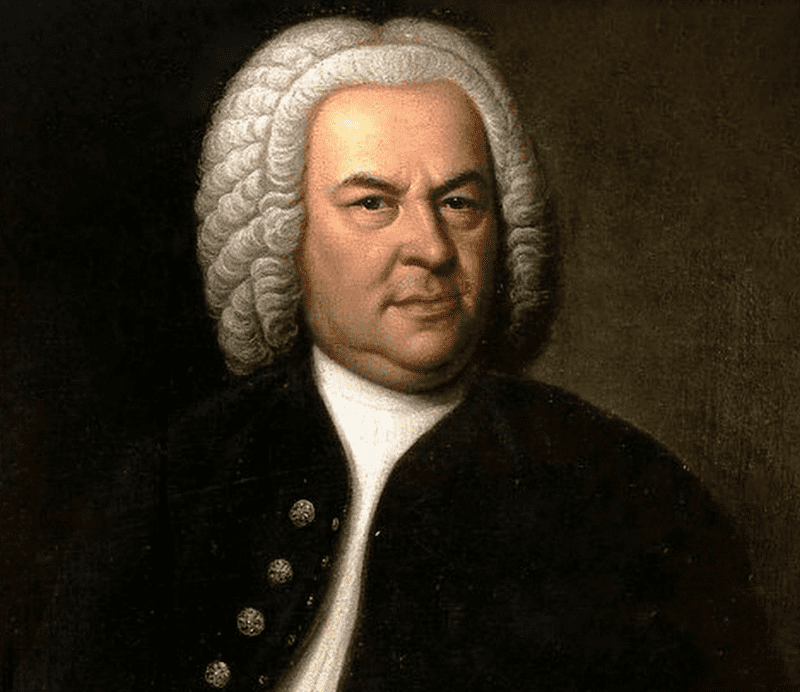
The "The peasant Cantata" Mer hahn en neue Oberkeet (We have a new governor), BWV 212, is a secular cantata by Johann Sebastian Bach. It was entitled the "Cantate burlesque" (burlesque cantata) by Bach himself, but is now popularly known as the Peasant Cantata. It is the latest definitely dated Bach cantata. This cantata's libretto was written by Christian Friedrich Henrici, known as Picander, and was written for performance on 30 August 1742. On that day the Erbherr, Lehnherr and Gerichtsherr Carl Heinrich von Dieskau, Saxon-Crown-Princely Kammerherr to the Rittergut Kleinzschocher near Leipzig, celebrated his thirty-sixth birthday with a huge fireworks display and, as was customary, took homage from the peasants on the same occasion. It is thought that Picander asked Bach to set his poetry to music.
The text describes how an unnamed farmer laughs with the farmer's wife Mieke about the tax collector's machinations while praising the economy of Dieskau's wife, ending by especially cheering on Dieskau. In places it uses the dialect of Upper Saxony ("Guschel" for mouth, "Dahlen" for love-games, "Ranzen" for belly and "Neu-Schock" for a 60 Groschen piece). The cantata is scored for two voices: the farmer (bass) and Mieke (soprano). The instrumentation includes a string trio of violin, viola and basso continuo, accompanied by a flute, horn and second violin respectively.The piece has 24 movements, more than any other Bach cantata.
[video width="640" height="360" mp4="https://www.easypianoonline.com/wp-content/uploads/2019/06/Aria_PeasantCantata_Bach.mp4"]
Lyrics
1
Ouverture
Violino, Viola, Continuo
2
Aria (Duetto) [Soprano, Bass]
Violino, Viola, Continuo
Mer hahn en neue Oberkeet
We have a new governor
An unsern Kammerherrn.
in our chamberlain.
Ha gibt uns Bier, das steigt ins Heet,
He gives us beer that goes to the head.
Das ist der klare Kern.
That's the simple truth.
Der Pfarr' mag immer büse tun;
The parson may be always cross;
Ihr Speelleut, halt euch flink!
musicians, get ready quick !
Der Kittel wackelt Mieken schun,
Mieke's smock is already shaking,
Das klene luse Ding.
the giddy little thing.
3
Recitative [Bass, Soprano]
Violino, Viola, Continuo
Bass:
Nu, Mieke, gib dein Guschel immer her;
Come on, Mieke, give us a kiss.
Soprano:
Wenn's das alleine wär.
As if that's all you want.
Ich kenn dich schon, du Bärenhäuter,
I know what you're like, you lazy good-for-nothing.
Du willst hernach nur immer weiter.
You always want something more.
Der neue Herr hat ein sehr scharf Gesicht.
The new master has a very sharp look.
Bass:
Ach! unser Herr schilt nicht;
Ah, our master does not scold.
Er weiß so gut als wir, und auch wohl besser,
He knows as well as we do, and even much better,
Wie schön ein bisschen Dahlen schmeckt.
how enjoyable is a little bit of fun.
4
Aria [Soprano]
Violino, Viola, Continuo
Ach, es schmeckt doch gar zu gut,
Ah, it's a bit too enjoyable
Wenn ein Paar recht freundlich tut;
when a couple get really friendly.
Ei, da braust es in dem Ranzen,
Oh, there is a buzzing in the guts
Als wenn eitel Flöh und Wanzen
just as if fleas and bugs
Und ein tolles Wespenheer
and a crazy swarm of wasps
Miteinander zänkisch wär.
were annoyed with each other.
5
Recitative [Bass]
Continuo
Der Herr ist gut: Allein der Schösser,
The master is good : but the tax-collector
Das ist ein Schwefelsmann,
comes straight out of hell.
Der wie ein Blitz ein neu Schock strafen kann,
Quick as a lightning flash he can slap a new land-tax on us
Wenn man den Finger kaum ins kalte Wasser steckt.
the very moment that we've just got out of hot water.
6
Aria [Bass]
Violino, Viola, Continuo
Ach, Herr Schösser, geht nicht gar zu schlimm
Ah. Mr tax- collector, don't be too hard
Mit uns armen Bauersleuten üm!
with us poor peasants.
Schont nur unsrer Haut;
Leave us our skin.
Fresst ihr gleich das Kraut
Eat up the cabbage
Wie die Raupen bis zum kahlen Strunk,
like the caterpiilars to the bare stalk.
Habt nur genung!
That should be enough!
7
Recitative [Soprano]
Continuo
Es bleibt dabei,
But it's still the truth
Dass unser Herr der beste sei.
that our master is the best.
Er ist nicht besser abzumalen
You can't picture a better
Und auch mit keinem Hopfensack voll Batzen zu bezahlen.
and he's not to be paid with a hop-sack full of pennies.
8
Aria [Soprano]
Violino, Viola, Continuo
Unser trefflicher,
Our excellent,
Lieber Kammerherr
dear chamberlain
Ist ein kumpabler Mann,
is a pleasant man
Den niemand tadeln kann.
with whom no one can find fault.
9
Recitative [Bass, Soprano]
Continuo
Bass:
Er hilft uns allen, alt und jung.
He helps us all, old and young.
Und dir ins Ohr gesprochen:
And I'll whisper in your ear:
Ist unser Dorf nicht gut genung
didn't our village do well
Letzt bei der Werbung durchgekrochen?
recently to slip through the recruitment?
Soprano:
Ich weiß wohl noch ein besser Spiel,
I know an even better game:
Der Herr gilt bei der Steuer viel.
the master has influence with the tax authorities.
10
Aria [Soprano]
Violino, Viola, Continuo
Das ist galant,
That is polite,
Es spricht niemand
nothing is said
Von den caducken Schocken.
about the lapsed land-taxes.
Niemand redt ein stummes Wort,
Nobody says a word,
Knauthain und Cospuden dort
but [the villages] of Knauthain and Cospuden
Hat selber Werg am Rocken.
have scarcely a shirt on their back.
11
Recitative [Bass]
Continuo
Und unsre gnädge Frau
And our gracious lady
Ist nicht ein prinkel stolz.
is not at all haughty.
Und ist gleich unsereins ein arm und grobes Holz,
She's made of rough wood just like us,
So redt sie doch mit uns daher,
she talks with us
Als wenn sie unsersgleichen wär.
just as if she were one of us.
Sie ist recht fromm, recht wirtlich und genau
She's really upright, really hospitable and careful
Und machte unserm gnädgen Herrn
and for our gracious master
Aus einer Fledermaus viel Taler gern.
she happily turns pennies into pounds.
12
Aria [Bass]
Violino, Viola, Continuo
Fünfzig Taler bares Geld
Fifty talers of ready cash
Trockner Weise zu verschmausen,
for a feast without drink
Ist ein Ding, das harte fällt,
is something that seems tough,
Wenn sie uns die Haare zausen,
even if they tousle my hair.
Doch was fort ist, bleibt wohl fort,
But what's gone is gone.
Kann man doch am andern Ort
It's possible somewhere else
Alles doppelt wieder sparen;
to save twice as much.
Laßt die fünfzig Taler fahren!
Let the fifty talers go!
13
Recitative [Soprano]
Continuo
Im Ernst ein Wort!
Be serious for a moment!
Noch eh ich dort
Before I can think
An unsre Schenke
of our tavern
Und an den Tanz gedenke,
and the dance,
So sollst du erst der Obrigkeit zu Ehren
Ein neues Liedchen von mir hören.
you must listen to a little new song from me
in honour of the governor.
14
Aria [Soprano]
Flauto traverso, Violino I/II, Viola, Continuo
Klein-Zschocher müsse
Klein-Zschocher should be
So zart und süße
as tender and sweet
Wie lauter Mandelkerne sein.
as pure almonds.
In unsere Gemeine
In our community
Zieh heute ganz alleine
there should be today nothing but
Der Überfluss des Segens ein.
an abundance of blessings.
15
Recitative [Bass]
Continuo
Das ist zu klug vor dich
That's too smart for you
Und nach der Städter Weise;
and like the ways of townfolk.
Wir Bauern singen nicht so leise.
We peasants do not sing so quietly.
Das Stückchen, höre nur, das schicket sich vor mich!
Just listen to this little piece, this is what suits me!
16
Aria [Bass]
Corno, Violino, Viola, Continuo
Es nehme zehntausend Dukaten
May ten thousand ducats be taken
Der Kammerherr alle Tag ein!
by the chamberlain every day!
Er trink ein gutes Gläschen Wein,
May he drink a good glass of wine
Und lass es ihm bekommen sein!
and may it agree with him!
17
Recitative [Soprano]
Continuo
Das klingt zu liederlich.
That sounds too sloppy.
Es sind so hübsche Leute da,
There are fine folk there
Die würden ja
who would certainly
Von Herzen drüber lachen;
laugh in your face,
Nicht anders, als wenn ich
just as if I
Die alte Weise wollte machen:
were to sing the old tune:
18
Aria [Soprano]
Corno, Violino, Viola, Continuo
Gib, Schöne,
Give us, fair one,
Viel Söhne
many sons
Von artger Gestalt,
with charming figures
Und zieh sie fein alt;
and let them grow up well.
Das wünschet sich Zschocher und Knauthain fein bald!
This is what Zschocher and Knauthain want to have soon!
19
Recitative [Bass]
Continuo
Du hast wohl recht.
You're quite right.
Das Stückchen klingt zu schlecht;
My little piece sounds too mean.
Ich muss mich also zwingen,
I must make an effort to sing
Was Städtisches zu singen.
something like they do in town.
20
Aria [Bass]
Violino, Continuo
Dein Wachstum sei feste und lache vor Lust!
May your growth be steady and laugh with delight!
Deines Herzens Trefflichkeit
The goodness of your heart
Hat dir selbst das Feld bereit',
has prepared the field for you
Auf dem du blühen musst.
in which you must flourish.
21
Recitative [Soprano, Bass]
Continuo
Soprano:
Und damit sei es auch genung.
And that's enough of that.
Bass:
Nun müssen wir wohl einen Sprung
Now we should just take a step
In unsrer Schenke wagen.
into our tavern.
Soprano:
Das heißt, du willst nur das noch sagen:
That means you only want to say one thing:
22
Aria [Soprano]
Violino, Viola, Continuo
Und dass ihr's alle wisst,
And so you all know,
Es istnunmehr die Frist
it is now the time
Zu trinken.
for drinking.
Wer durstig ist, mag winken.
Thos who are thirsty should make a sign.
Versagt's die rechte Hand,
If your right hand refuses,
So dreht euch unverwandt
then turn at once
Zur linken!
to the left!
23
Recitative [Bass, Soprano]
Continuo
Bass:
Mein Schatz, erraten!
My darling, you guessed!
Soprano:
Und weil wir nun
And since we now
Dahier nichts mehr zu tun,
have nothing more to do here,
So wollen wir auch Schritt vor Schritt
we also should step along
In unsre alte Schenke waten.
and wend our way to our old tavern.
Bass:
Ei! hol mich der und dieser,
Hey! Fetch me this man and that man!
Herr Ludwig und der Steur-Reviser
Herr Ludwig and the tax-collector
Muß heute mit.
must join us today.
24
Chorus [Soprano, Bass]
Violino, Viola, Continuo
Wir gehn nun, wo der Dudelsack
We are going now, where the bagpipes
In unsrer Schenke brummt;
drone in our tavern
Und rufen dabei fröhlich aus:
and we shout with joy as we go:
Es lebe Dieskau und sein Haus,
long live Dieskau and his family,
Ihm sei beschert,
may he be blessed
Was er begehrt,
with what he desires
Und was er sich selbst wünschen mag!
and all that he can wish for himself!

[xyz-ihs snippet="NavigationLinksBlock-Common"]
All The Pretty Little Horses/Jazzy
Arr. Forrest Kinney
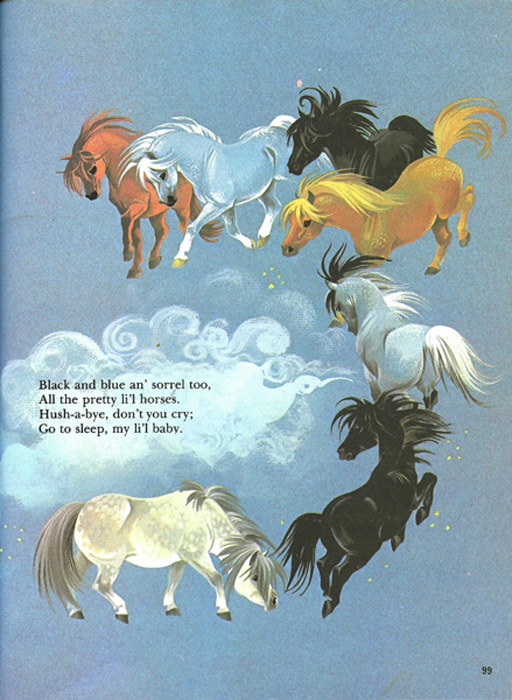
The "All The pretty Little Horses" is a traditional lullaby from the United States. It has inspired dozens of recordings and adaptations, as well as the title of Cormac McCarthy's 1992 novel All the Pretty Horses. The origin of this song is not fully known. The song is commonly thought to be of African-American origin.
The author Lyn Ellen Lacy is often quoted as the primary source for the theory that suggests the song was "originally sung by an African American slave who could not take care of her baby because she was too busy taking care of her master's child. She would sing this song to her master's child". However, Lacy's book Art and Design in Children's Books is not an authority on the heritage of traditional American folk songs, but rather a commentary on the art and design in children's literature. Still, some versions of "All the Pretty Little Horses" contain added lyrics that make this theory a possibility.
One such version of "All the Pretty Little Horses" is provided in Alan Lomax's book American Ballads and Folksongs, though he makes no claim of the song's African-American origins. "Way down yonder, In de medder, There's a po' lil lambie, De bees an' de butterflies, Peckin' out its eyes, De po' lil lambie cried, "Mammy!" Another version contain the lyrics "Buzzards and flies, Picking out its eyes, Pore little baby crying". The theory would suggest that the lyrics "po' lil lambie cried, "Mammy" is in reference to the slaves who were often separated from their own families in order to serve their owners. However, this verse is very different from the rest of the lullaby, suggesting that the verse may have been added later or has a different origin than the rest of the song. The verse also appears in the song "Ole Cow" and older versions of the song "Black Sheep, Black Sheep".
Lyrics
Hush-a-bye, don't you cry
Go to sleep, my little baby
When you wake, you shall have
All the pretty little horses
Dapples and grays, blacks and bays
All the pretty little horses
Hush-a-bye, don't you cry
Go to sleep little baby
When you wake, you shall have
All the pretty little horses
Dapples and grays, blacks and bays
All the pretty little horses

[xyz-ihs snippet="NavigationLinksBlock-Common"]
Newt Says Goodbye To Tina
by James Newton Howard

The "Newt Says Goodbye To Tina from Fantastic Beasts and Where to Find Them is a 2016 fantasy film directed by David Yates. A joint British and American production, it is a spin-off and prequel to the Harry Potter film series, and is produced and written by J. K. Rowling in her screenwriting debut, inspired by her 2001 guide book of the same name. The film features an ensemble cast that includes Eddie Redmayne, Katherine Waterston, Dan Fogler, Alison Sudol, Ezra Miller, Samantha Morton, Jon Voight, Carmen Ejogo, and Colin Farrell. It is the first instalment in the Fantastic Beasts film series, and ninth overall in the Wizarding World franchise, that began with the Harry Potter films.
Fantastic Beasts and Where to Find Them premiered in New York City on 10 November 2016 and was released worldwide on 18 November 2016 in 3D, IMAX 4K Laser and other large format cinemas. It received generally positive reviews from critics and emerged a commercial success having grossed $814 million worldwide, making it the eighth highest-grossing film of 2016.
The film was nominated for five BAFTAs, including Best British Film, winning Best Production Design, and was nominated for two Academy Awards, winning Best Costume Design, becoming the first Wizarding World film to win an Academy Award. A sequel, titled Fantastic Beasts: The Crimes of Grindelwald, was released on 16 November 2018.
[video width="640" height="360" mp4="https://www.easypianoonline.com/wp-content/uploads/2019/06/Newt-says-goodbye-to-Tina-Final-Scene-Fantastic-Beasts-and-Where-to-Find-Them-1080p.mp4"]

[xyz-ihs snippet="NavigationLinksBlock-Common"]
Think of Me
by Andrew Lloyd Webber
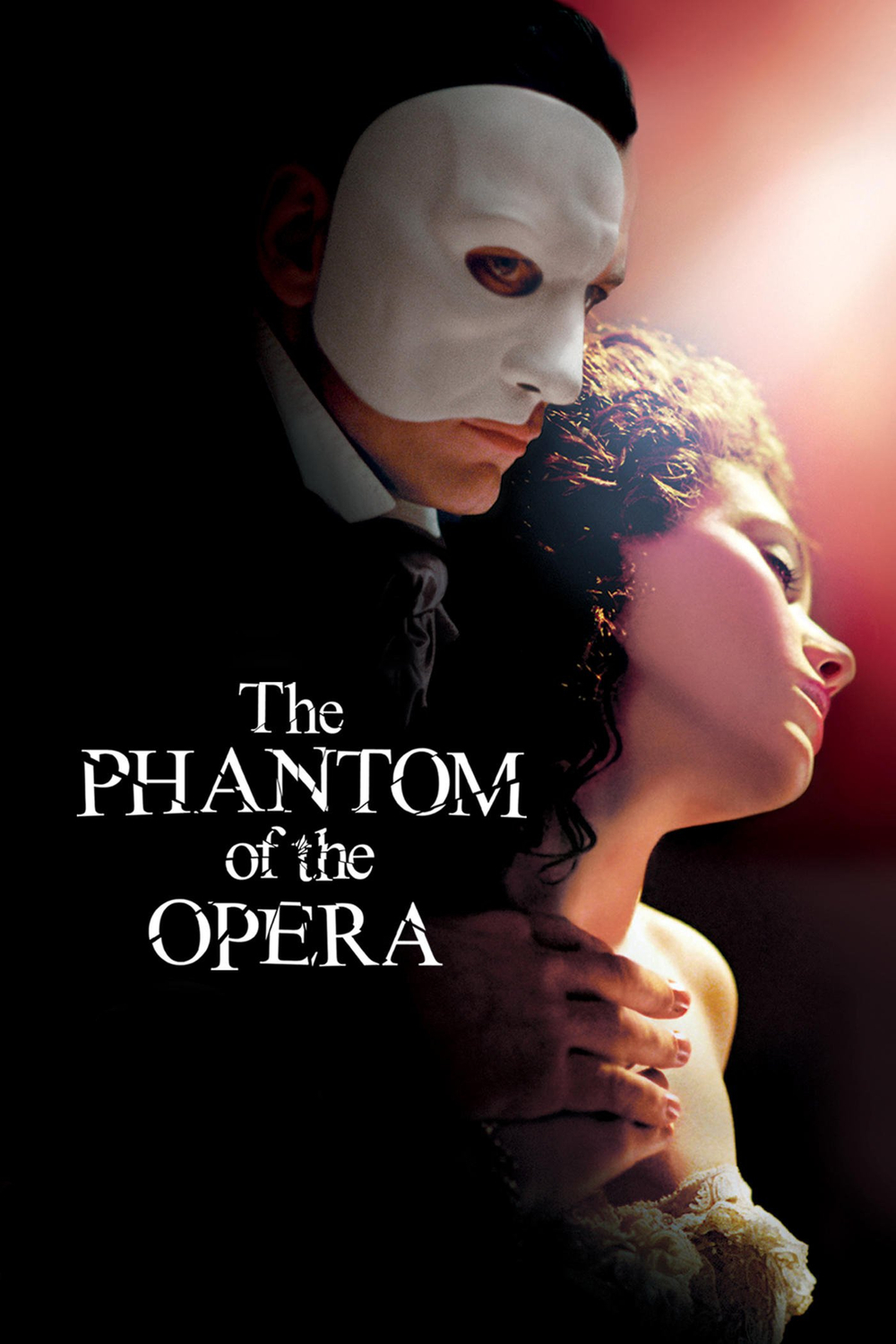
The "The Phantom of the Opera" is a musical with music by Andrew Lloyd Webber and lyrics by Charles Hart. Richard Stilgoe and Lloyd Webber wrote the musical's book together. Stilgoe also provided additional lyrics.
Based on the eponymous French novel by Gaston Leroux, its central plot revolves around a beautiful soprano, Christine Daaé. Soon Christine Daaé becomes the obsession of a mysterious, disfigured musical genius living in the subterranean labyrinth beneath the Paris Opéra House. The musical opened in London's West End in 1986, and on Broadway in 1988. In 1986 it won the Olivier Award and the 1988 Tony Award for Best Musical.
Michael Crawford (in the title role) won the Olivier and Tony Awards for Best Actor in a Musical. The Phantom of the Opera is the longest running show in Broadway history by a wide margin, and celebrated its 10,000th Broadway performance on 11 February 2012, the first production ever to do so. Finally, it is the second longest-running West End musical, after Les Misérables, and the third longest-running West End show overall, after The Mousetrap.
[video width="640" height="360" mp4="https://www.easypianoonline.com/wp-content/uploads/2019/06/ThinkOfMe.mp4"]
Lyrics
Think of me, think of me fondly
When we've said goodbye
Remember me, once in a while
Please promise me you'll try
When you find that once again you long
To take your heart back and be free
If you ever find a moment
Spare a thought for me
We never said our love was evergreen
Or as unchanging as the sea
But if you can still remember
Stop and think of me
Think of all the things
We've shared and seen
Don't think about the way
Things might have been
Think of me, think of me waking
Silent and resigned
Imagine me trying too hard
To put you from my mind
Recall those days
Look back on all those times
Think of the things we'll never do
There will never be a day
When I won’t think of you
Can it be, can it be Christine?
Bravo!
Long ago, it seems so long ago
How young and innocent we were
She may not remember me
But I remember her
Flowers fade, the fruits of summer fade
They have their season so do we
But please promise me that sometimes
You will think of me
Songwriters: Andrew Lloyd Webber / Charles Hart / Richard Stilgoe







































